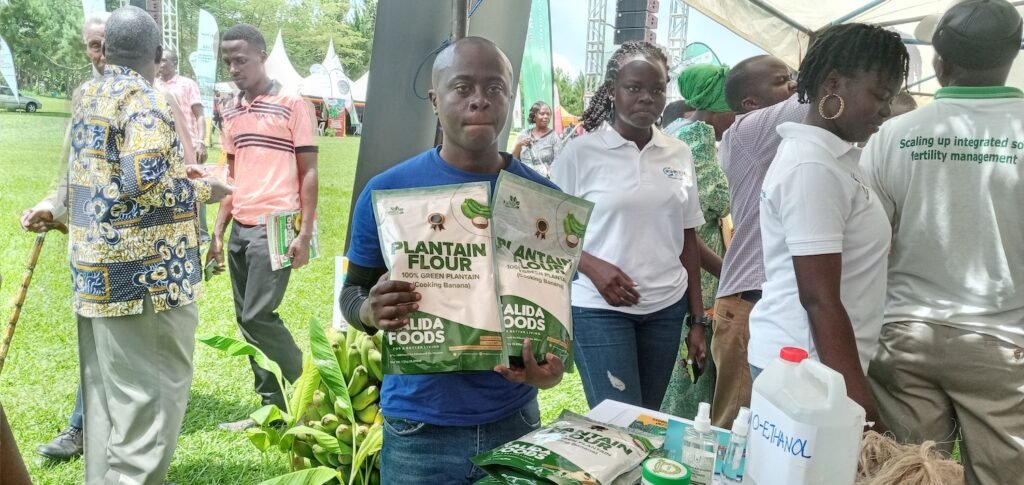By Richard Sultan
Nutrient-enhanced banana flour boosts hidden hunger fight
Information on the packet shows the flour is gluten-free, contains starch, protein, fibre, zinc, iron and potassium. Food scientists recommend it for baking porridge, bread, cakes, biscuits and waffles.
It can also be mixed with millet flour, soybean flour and maize flour. The flour is sold in supermarkets in Kampala and surrounding districts after the National Crops Resources Research Institute (NaCRRI) partnered with Kalida Foods, a local food processing company, to produce large quantities.
Yusufu Mukasa, who heads the Food Processing Technology and Incubation centre at NARL in Kawanda, said the flour is the product of research by scientists looking for a solution to the hidden hunger especially among communities in Western and Central Uganda where banana is consumed most The findings of the initial research carried out over a decade by Dr. Florence Muranga in conjunction with scientists at Makerere University showed that green banana could be processed, dried and consumed as a nutritious food for pregnant mothers, babies and persons with HIV/ Aids to boost their immunity.
Scientists at NaRL carried out another research where they discovered persons with HIV/Aids in Rakai district and communities suffering from hidden hunger could be helped by having them consume porridge made from nutritious banana flour.
A total of 173 people living with HIV/ Aids were registered with the Rakai Health Science Project.
They were interviewed using structured questionnaire to determine the current contribution of banana to the household food security.
A number of children and pregnant mothers who were malnourished were also interviewed and given the nutritious banana porridge to take.
Data was collected and experiments conducted to determine the suitability of banana as food to boost the energy and nutrient intake.
The pilot test product – a nutrient enhanced banana powder – was distributed to the participants, and the supplement diet showed that the participants had their immunity boosted since the product contained iron and zinc.
Tests conducted on samples at the NaRL laboratory confirmed the mixture was fit for human consumption. The centre is supplying and selling the products to patients in hospitals, rural communities where malnutrition level is high. It purchases bananas from farmers in Mbarara, Busehenyi, Kyejojo, Masaka, Bushenyi and Insingiro among others.
Once the bananas are delivered at NaRL, a group of women and youth have been employed to peel and wash them in food grade solution called Meta Bisulphite to maintain its colour. They are then sliced using an automated slicing machine, with the thickness kept at 5ml to maintain good drying.
These slices are put on trays which have holes to enable water to drip and they are loaded in the drier which heats at 60 degrees Celsius.
Once this is done it is taken to grinding mill to get banana flour ready for packaging in 2kg packets. The centre has the capacity to mill one tonne of banana flour per day. The flour is sold at UGShs10,000 (USD2.68) in the local markets.

